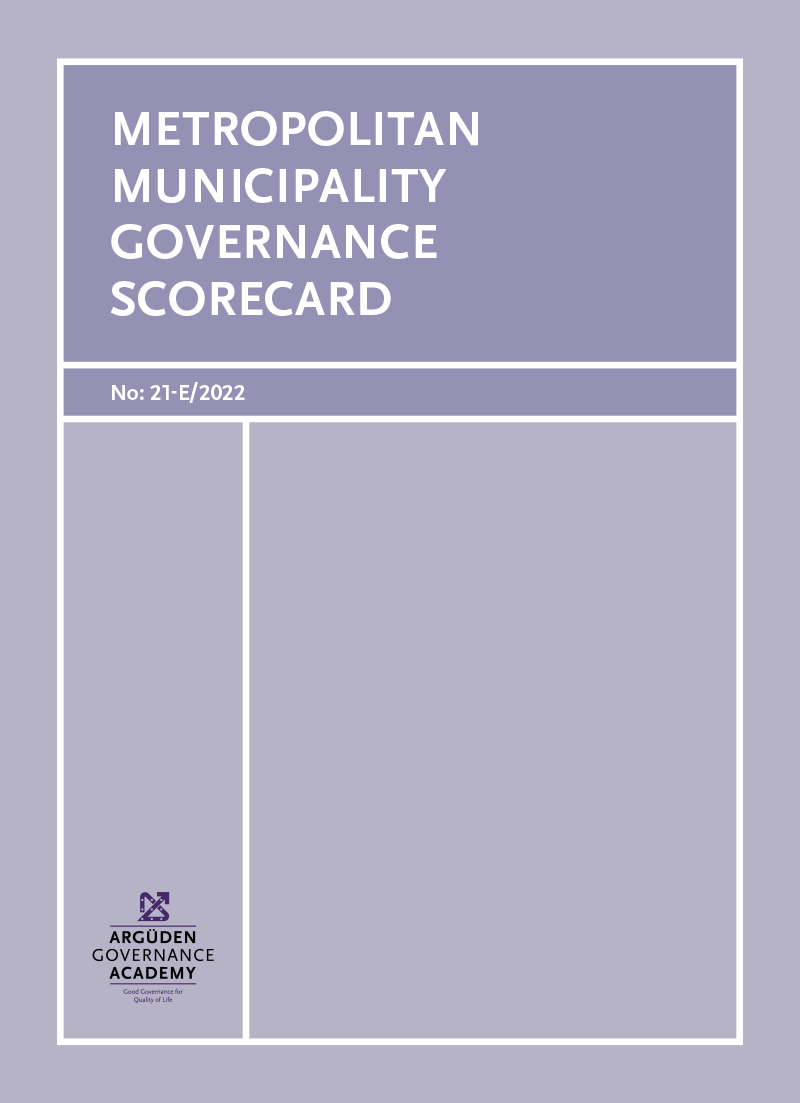MMGS at a Glance
PARTICIPATION
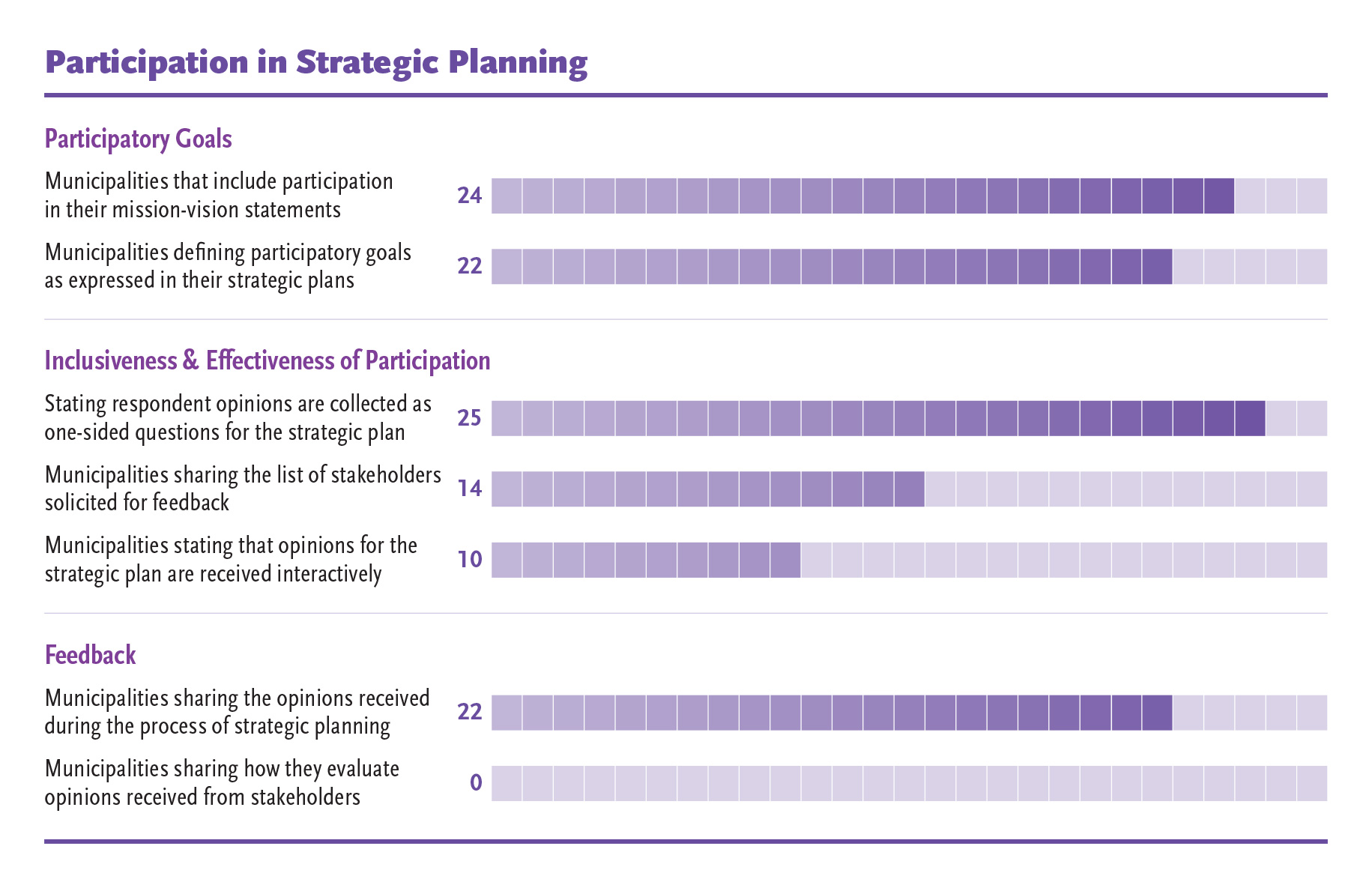
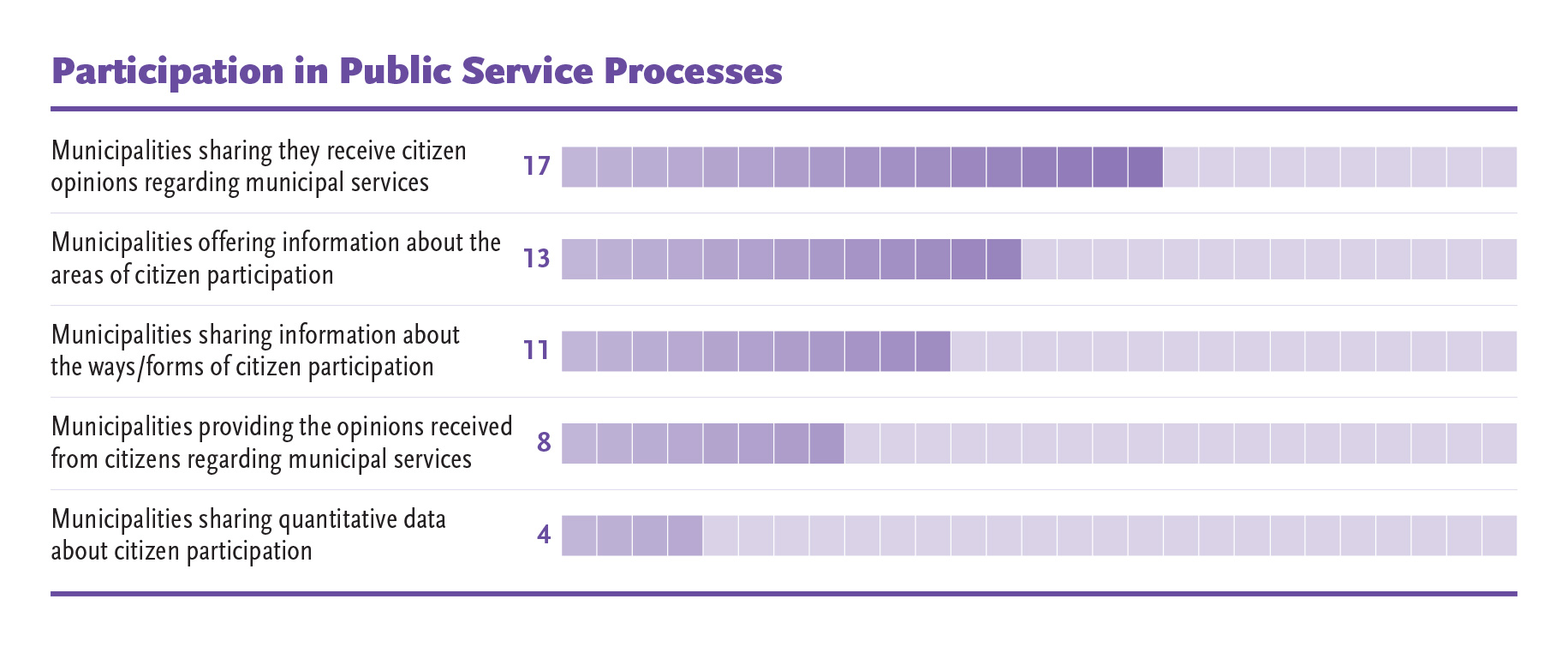
QUALITY OF INFORMATION
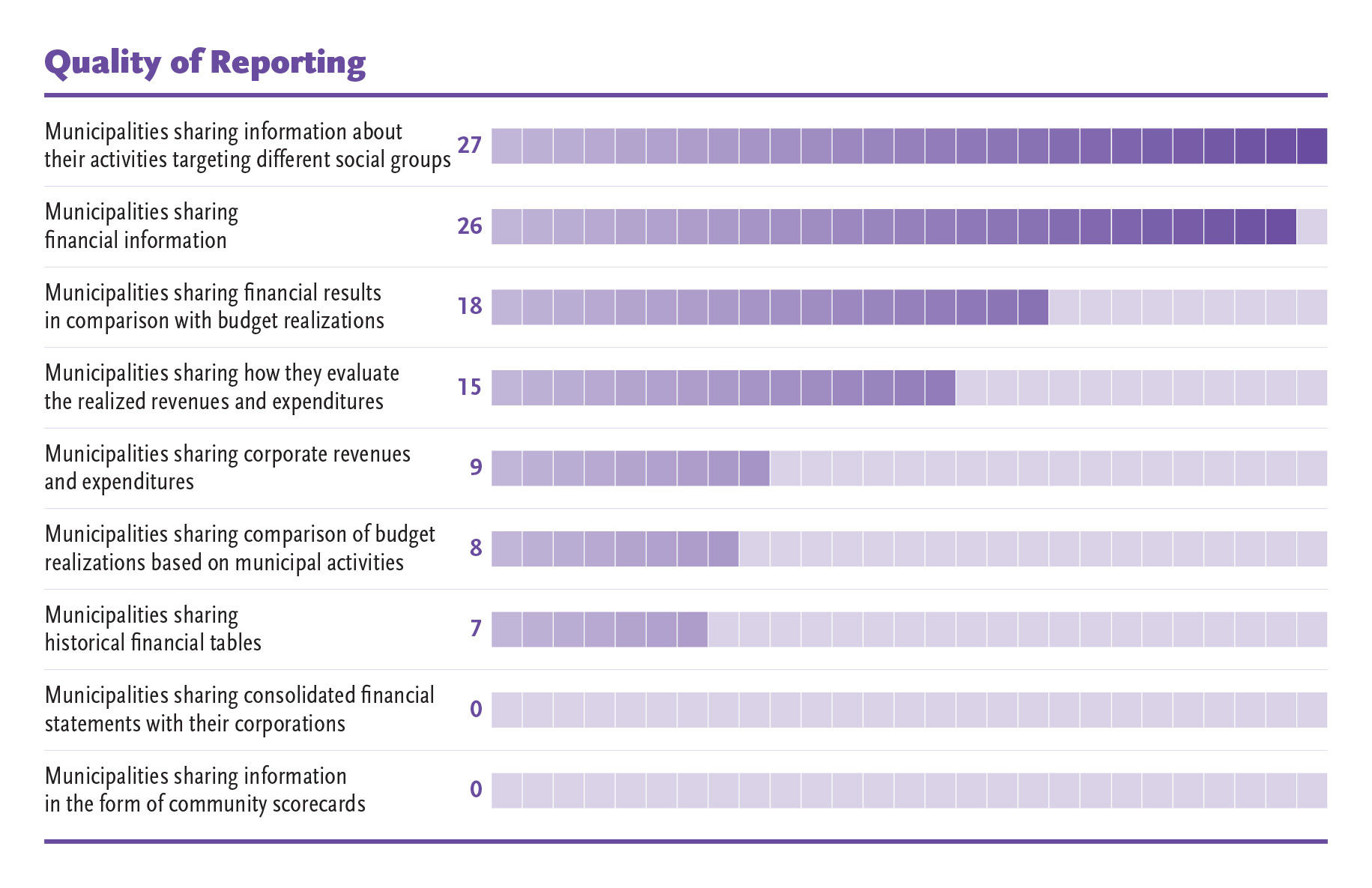
INSTITUTIONAL FUNCTIONING
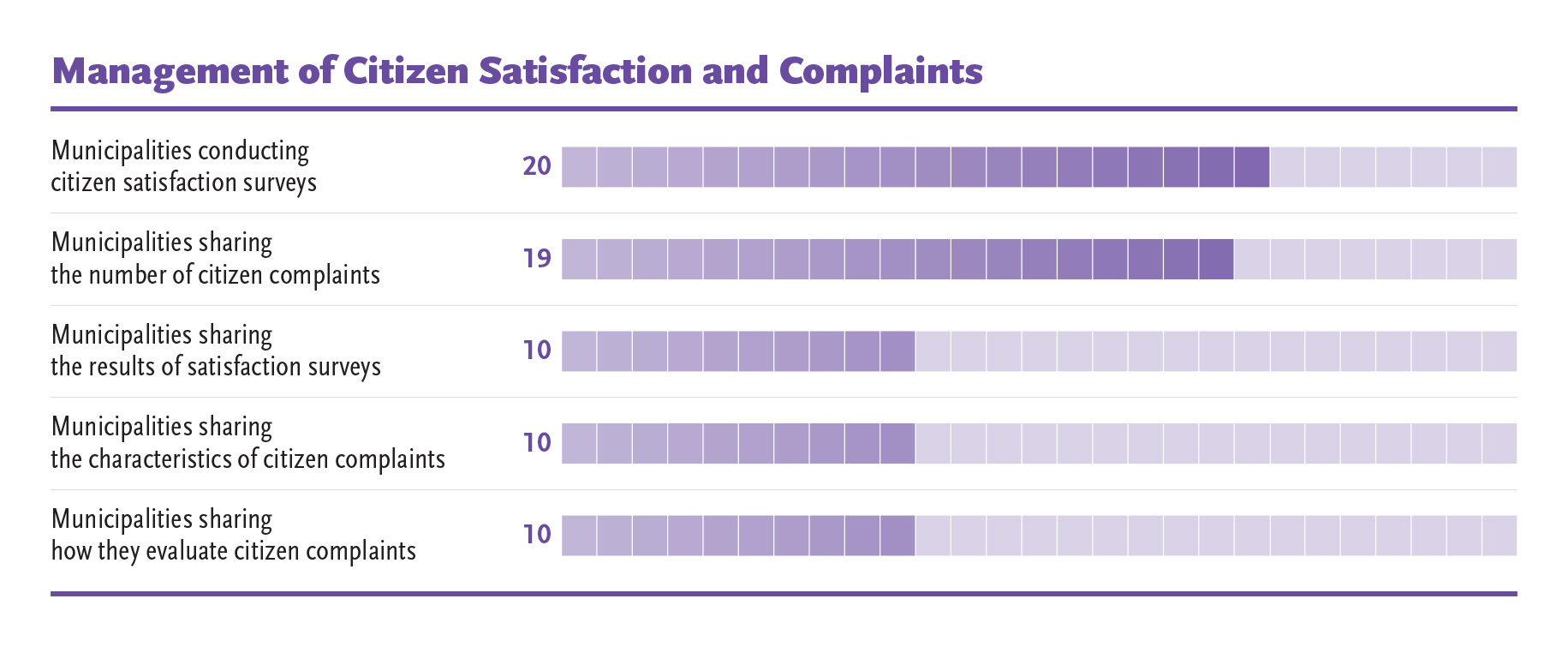
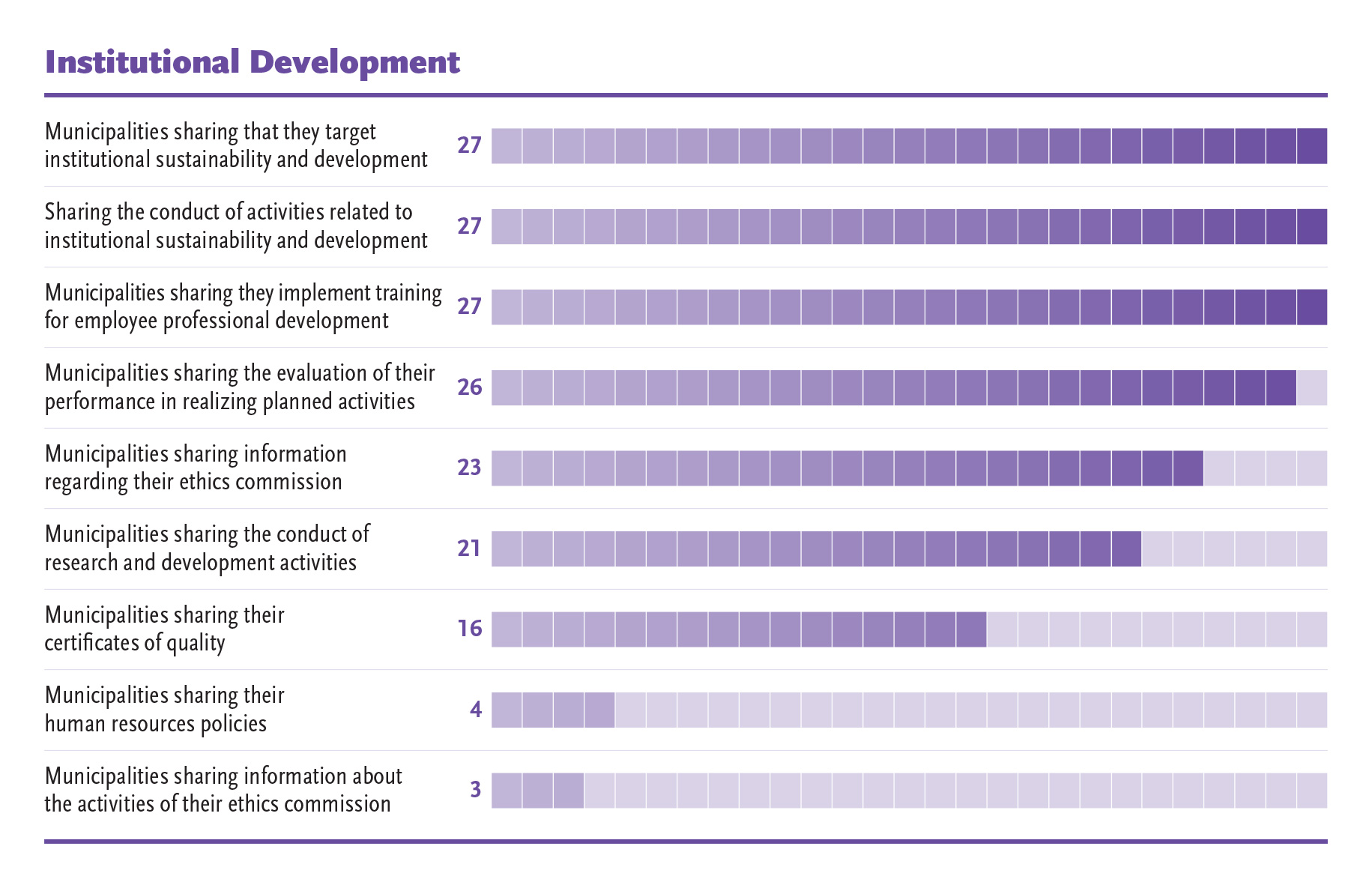
QUALITY OF LIFE
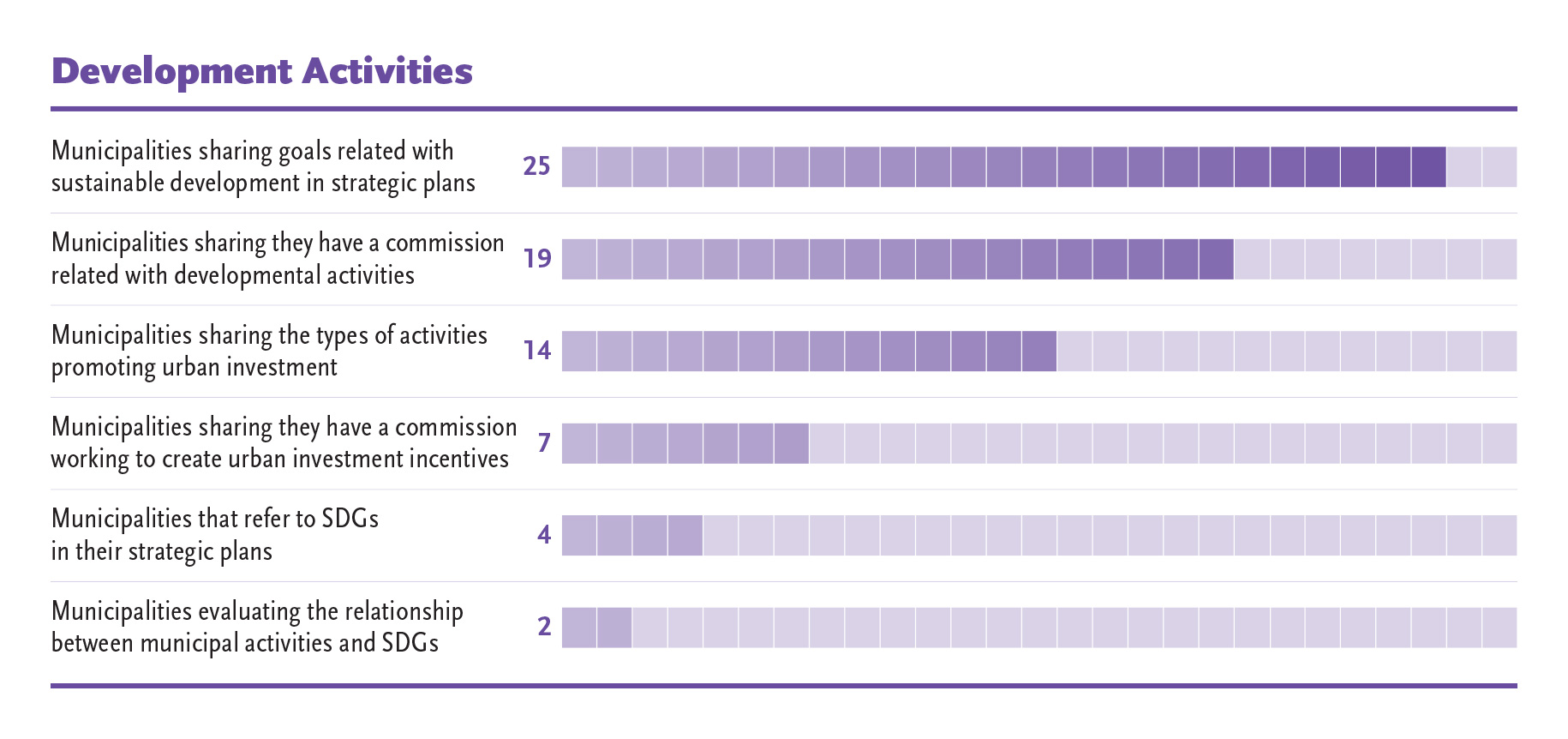
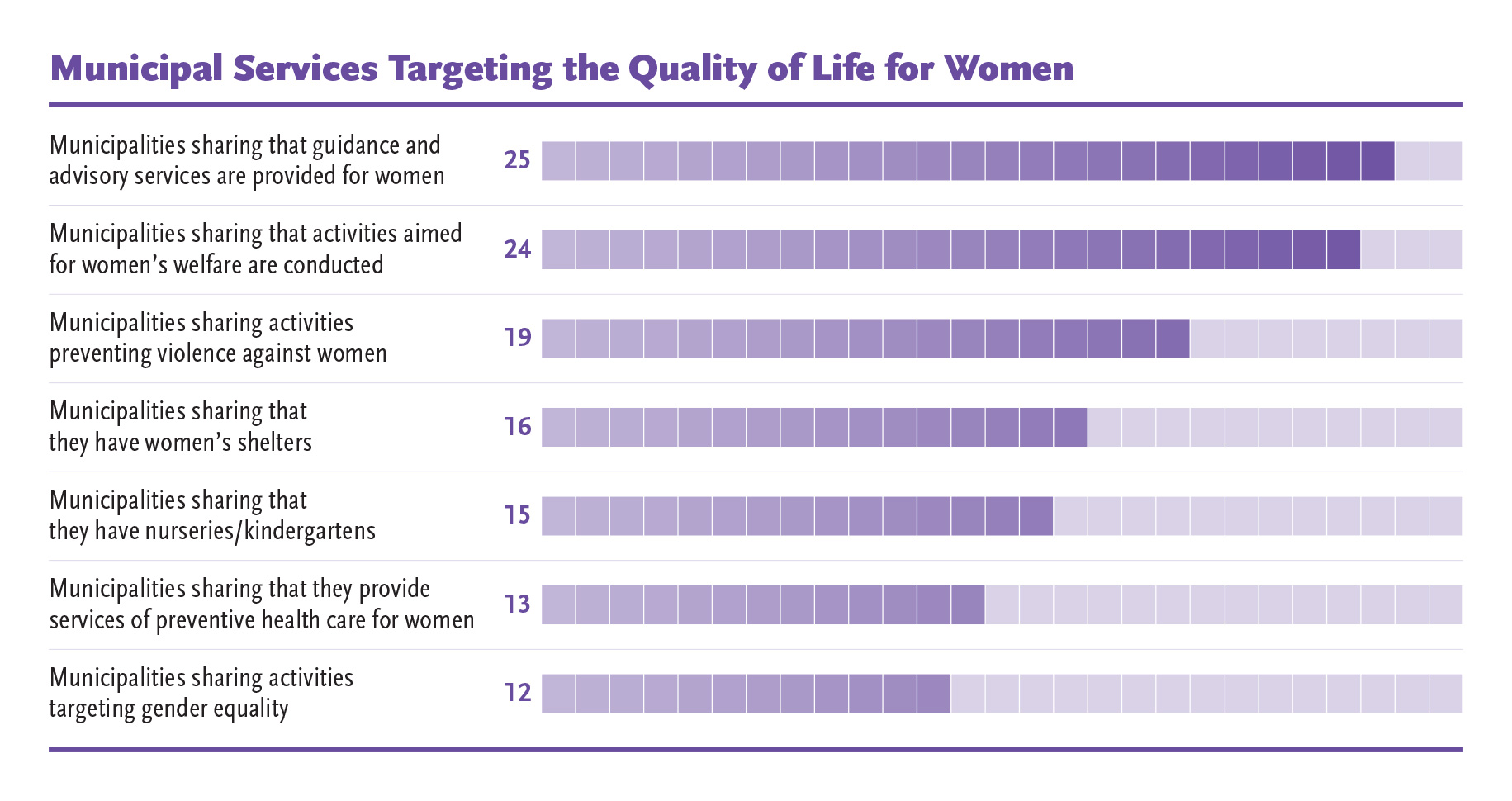
SUMMARY OF RECOMMENDATIONS
MMGS research findings indicate that the quality of some governance practices requires improvement.
Our recommendations regarding these practices have been classified under four subject headings. Detailed recommendations are explained in “Evaluation and Recommendations” section.
- Strengthening Sustainable Development Efforts and Improving Quality of Life
- Detailed analysis of different social groups, districts, and neighborhoods in the planning process
- Conducting a detailed current position analysis during planning processes
- Improving data collection capability and processes
- Considering short, medium, and long-term perspective(s) during planning processes
- Adoption of a holistic perspective for sustainable development
- Considering interaction between inputs, outputs, and outcomes
- Considering economic, social, and environmental issues with a holistic perspective
- Understanding the synergy between governance practices and their possible outcomes due to these interactions
- Alignment of goals with national and international development efforts during planning processes
- Considering National Development Plans
- Considering Regional Development Plans and aligning the Strategic Plan Goals with the goals of National and Regional Developments Plans
- Aligning Strategic Plan Goals with Sustainable Development Goals
- Improving coordination and cooperation with district municipalities
- Harmonizing the planning processes of district and metropolitan municipalities
- Conducting joint planning activities for common responsibilities to improve resource efficiency
- Improving coordination with subsidiary organizations and companies
- Improving cooperation between metropolitan municipalities with their subsidiaries in the planning, implementation, and reporting phases
- Cooperating for resource efficiency
- Preparing action plans for important issues in a participatory manner
- Preparing action plans with inclusive (considering the participation of all related stakeholders) and evidence-based perspectives
- Developing a common vision with the city’s inhabitants
- Improving the quality of life for each social group
- Providing services for each societal group in a fair and inclusive manner
- Detailed analysis of different social groups, districts, and neighborhoods in the planning process
- Improving Quality of Participation
- Using meaningful participation methods and approaches to encourage citizen participation in the metropolitan municipality planning processes
- Identifying all relevant stakeholders
- Identifying needs, expectations, and demands of stakeholders and understanding how these issues relate to strategy and capabilities
- Preparing stakeholders to consultation processes by providing background information regarding discussion topics
- Identifying participation methods (workshop, focus group, and so on)
- Ensuring two-way communication between parties during consultation processes
- Communicating decisions incurred after consultation, along with the reasoning behind each decision
- Continuous communication and engagement during and after the implementation phases
- Ensuring the participation of all related stakeholders into the planning processes
- Academia
- Civil Society Organizations
- Business
- Public bodies
- Supporting active citizenship and right to the city
- Continuously engaging with all stakeholders
- Supporting active citizenship, and strengthening participation mechanisms
- Improving good governance practices in City Councils
- Improvement of inclusiveness in city councils
- Improvement of the city councils’ capacities to offer recommendations and participate in the decision-making processes of metropolitan municipalities
- Improving the interaction between mayors and municipal council members with their citizens
- Organizing regular meetings with citizens for mayor and municipal council members in an inclusive manner
- Maintaining minutes during mayor and municipal council members’ meetings, and using meeting minutes as an input (if applicable) in planning processes
- Introducing new mechanisms for participation
- Participatory budgeting
- Neighborhood Councils
- Forming thematic workstreams with participation of stakeholders (such as workstream for children)
- Improving and strengthening cooperation with stakeholders
- Cooperating with academia, businesses, and CSOs
- Encouraging volunteer participation to support municipal services
- Using meaningful participation methods and approaches to encourage citizen participation in the metropolitan municipality planning processes
- Improving Quality of Information Sharing
- Providing meaningful and citizen centric information
- Using an understandable language in each media outlet (annual report, web site, etc.) for information sharing
- Communicating possible outputs and outcomes of plans and activities with stakeholders in an understandable manner
- Preparing the Citizen Scorecard
- Sharing information related to districts, neighborhoods, and diverse social groups
- Preparing separate reports for the activities conducted related to those social groups, districts, and neighborhood
- Providing information in a comparable manner (comparison like budget and realized goals, and so on.)
- Development planning with a holistic perspective
- Alignment of municipality’s plans with regional and national plans
- Information sharing regarding the activities that support regional development efforts
- Strengthening transparency and democratic accountability
- Live broadcasting /Streaming of municipal council meetings
- Building an archive of records of accessible and observable municipal council meetings for its citizens’ use
- Sharing municipal council decisions, municipal council’s commissions reports, and all related documentation with the public through a website
- Sharing Ethics Commission’s reports with the public through a website
- Sharing Internal Audit Reports with the public through a website
- Annual reporting by City Councils
- Preparing and disseminating the City Council’s Annual Report
- Preparing the Annual Report based on data as well as communicating any potential impacts from actions taken
- Strengthening financial transparency and accountability
- Sharing financial information that is understandable to the stakeholders
- Preparing financial reports with a budgeted and realized comparison(s)
- Communicating to stakeholders the reasons for deviations from budgeted figures
- Communicating to stakeholders action plans for improving any deviations
- Preparing and presenting financial reports whose contents compare data of the previous 3 years period
- Communicating to stakeholders important changes (increases and decreases) in comparative financial statements
- Informing stakeholders of the improvement and corrective actions regarding changes
- Sharing consolidated financial statements, including subsidiary organizations and subsidiary companies of metropolitan municipalities in comparison with the previous 3 years period
- Including all financial commitments in any offered financial information
- Preparing a Citizen Scorecard in an understandable summary fashion for stakeholders
- Sharing information on the performance of goal-based budgets
- Sharing activity-based budget and realized figures for each strategic goal
- Communicating to stakeholders the reasons for deviations from budgeted figures
- Collecting and sharing city related information
- Demographics, statistics, etc. related to the city
- Information useful for business decision making
- Sharing information with citizens about their opinions, complaints and demands
- Information sharing regarding the evaluation process of complaints and the improvement of areas based on complaint evaluations
- Monitoring citizen satisfaction level
- Building trust by providing effective solutions to complaints
- Information sharing regarding the citizen’s right for information
- Providing meaningful and citizen centric information
- Strengthening Institutional and Administrative Capacity
- Utilization of integrated quality management systems
- Implementation of a total quality management approach
- Enabling continuous learning processes
- Strengthening financial resource management
- Eliminating inefficiencies
- Increasing revenues
- Effectively using fixed assets
- Mobilizing stakeholders for common goals
- Cooperating with stakeholders
- Mobilizing stakeholders’ resources
- Forming partnership platforms
- Utilization of stakeholders’ views and recommendations
- Analysis of stakeholders’ complaints and recommendations
- Developing improvement actions based on the analysis of complaints and recommendations
- Continuous engagement with stakeholders
- Utilization of integrated quality management systems



